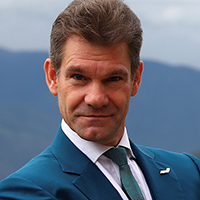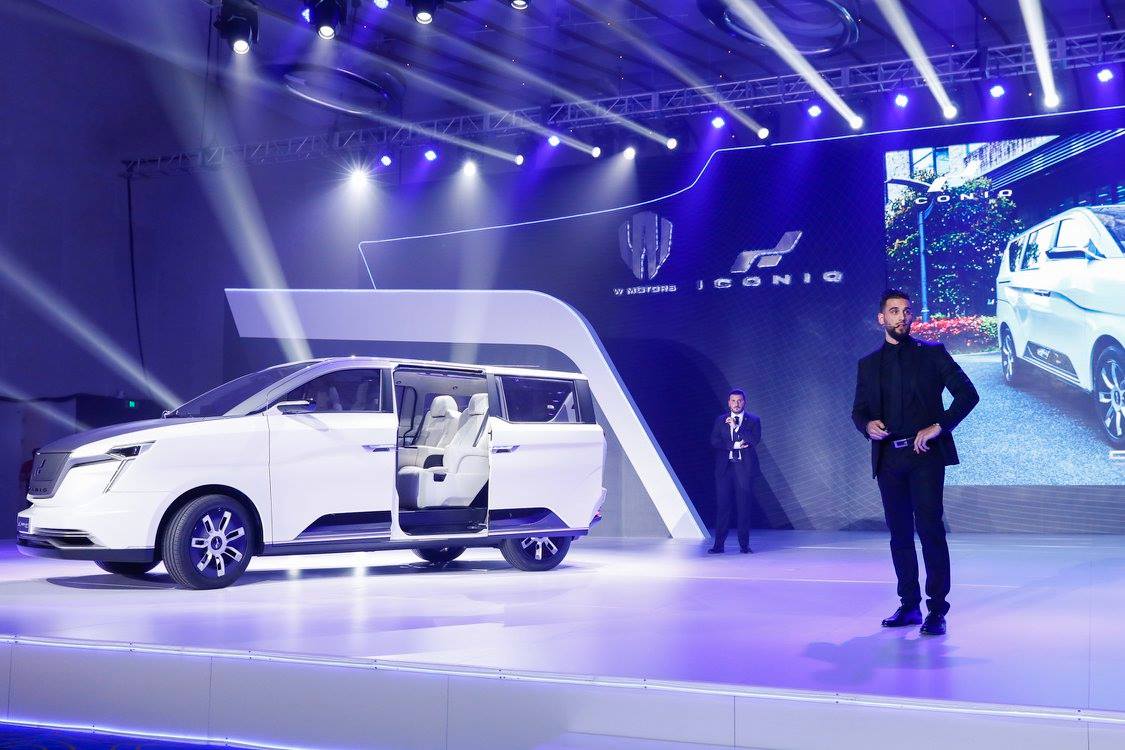This interview is part of the Marketer’s Toolkit 2020. Download the summary report here.
In this exclusive interview for WARC’s annual Marketer’s Toolkit release, Bernd Pichler – Chief Marketing Officer at ICONIQ Motors, a clean energy automotive startup – speaks to WARC’s Jenny Chan about disrupting traditional automotive marketing, a new era of influencer marketing in China, and changing the perception of ‘clean energy’.

Bernd Pichler, Chief Marketing Officer, ICONIQ Motors
WARC: ICONIQ is a relatively young brand compared to the companies that you've been at before: Jaguar Land Rover, Volkswagen. How are you building this young brand in such a market like China? What are the brand-building techniques that you're using?
Pichler: It's a global brand, so that's the charm and the challenge. One of the reasons why I left those traditional car brands and then joined a new energy vehicle start-up is an expression I call ‘Ignorigance’. That is when ignorance meets arrogance, and that's a very dangerous path, and that's when you have to get out. That was, for me, in 2015: I noticed that the new trends in the market - connected, autonomous, shared mobility, and electric cars – were not really in the focus of [the previous company’s] leadership at the time. I arrived in China in 2005, and realised China was pushing towards electric vehicles very heavily. ICONIQ had a very promising proposition, not only as a new brand in the new ‘energy vehicle’ area, but also with its new approach, being a SPV (Sexy and Smart Passenger Vehicle).
That is also the main direction for ICONIQ to establish our branding worldwide: the focus is purely on the passenger, and not on the traditional performance of the vehicle, which was engine-based in most cases. ‘Acceleration from 0 to 100’ or ‘top speed’ selling propositions are irrelevant in most of the country. Differentiating on ‘driving’ features means completely neglecting the passenger in the rear. If you commute in China’s big cities regularly, a one-way commute is about 45 minutes – it’s one and a half hours a day. Either you sit in the driver's seat, or if you're lucky you'll be driven, but we must try to recover and regain this time spent on commuting. This is where ICONIQ comes in.
WARC: When you launch this new ICONIQ brand in the global market, what are your considerations on the media mix and media channels? And how are you going to disrupt the current brand-building culture [in the auto category] which is still based on the performance of the engine?
Pichler: As you said, it's disruption, and disruption in a way has creativity at its core. You have to bear in mind that ICONIQ is a small niche player, so we will never be able to go against the paid media budgets of the traditional Volkswagens, the Toyotas, and the other big brands who have a lot of money and basically pre-booked the main channels.
Therefore we won't choose the traditional marketing way, and won't start with choosing the media mix. I would start with, "What does our brand stand for?" This has to be crystal clear and authentic. There is no point, and especially not in China, to try to come up with something that the brand doesn't really represent. We have to charge – an expression which I like, because it works with the EV car very well – the brand first. Then we plan along the sales funnel, and that one won't change too much. We still have to first get awareness into the potential customer base. Second, create a really good image, which in our case would be a premium and global brand. Thirdly, it comes to making sure you get into the consideration basket of the potential customer base, and finally close the deal.
WARC: How important is using KOLs [key online influencers] for the automotive category in China?
Pichler: What we also will consider is not just sales, but also getting people into an ICONIQ [vehicle], then making them happy and getting them to brand ambassador status, because that's the most credible. You might have heard the expression ‘KOC’ before. It gets away from the ‘key opinion leader’ term, because a lot of people realise the ‘leader’ might be bought. The key opinion consumer (KOC) is more credible, if the KOC does it out of free will without being manipulated or paid.
Nevertheless, the KOL and KOC both contain ‘O’ for opinion. You might believe in the opinions of other people, however, mankind is naturally a bit suspicious – the only one you really believe in is yourself. Even though good friends and the opinion leaders might recommend that brand, you would want to try it for yourself, especially in a high-involvement category where you're outside your comfort zone. That is where an automobile is. If you spend that much money on a vehicle then you want to know if it is the right product for you. Therefore, the ‘key owned experience’ (I call it KOE) is mandatory. You have to get people into your product, use your product, experience your service, because those are things nobody can take away from you.

This is how we will tackle our launch. We will try to maximise exposure and not necessarily through the classical dealership, because that model is going to fade very quickly. Within China, we're not even considering this for various reasons. First of all, it comes at a high cost – for the time being – to be close to the customer in the downtown areas of big cities. Second, we lose ownership of the whole process from price controls to marketing. Finally, it is to the detriment of the end-customer if the residual value of the vehicles gets very low via dealerships. The only way [is] to control the whole channel ourselves for direct access to the end-customer and ensure customer satisfaction, ultimately.
WARC: What channel would that be, if you don't rely on dealerships?
Pichler: If we talk about China, you ask yourself where customers spend their weekends normally. A lot of potential customers for us spend their weekends in big premium shopping malls. Why? One reason is that China’s climate makes it not so friendly to spend time outside. Either it's too hot, too cold, too rainy, or too polluted. So, they choose a good mall where they can maximise the efficiency of their visit by trying to do a lot: children’s English classes, or Chinese cultural classes, or kung-fu, or whatever you want your child to learn. In these shopping malls, there is normally a whole level reserved just for children, and that is a very smart approach. Ideally, they can also get their cars serviced in the underground parking area.
We won't consider e-commerce for the time being, because we can only consider e-commerce when we have a brand name, and when we’re known. To hope that you become famous and push yourself upwards into a sort of sales funnel – that is pushing a rock uphill. That wouldn't really work and it's definitely not a premium positioning. At a later stage, we will start online sales for convenience reasons, once we have reached a certain level of awareness, but not upfront.
WARC: What is the secret to shifting marketing focus to the rear of the car where the passenger is?
Pichler: We won't be able to, from a budget perspective, spend millions on marketing in the hope I find my potential customer by plastering the world with out of home advertisements. That's not going to happen because there is no budget in the world which could facilitate that.
Therefore we must find a smarter way, and it comes back to creativity. We do have a plan on how we want to create buzz, and I don't really plan to spend a lot of money, or any penny on buying media. I prefer that people write about us and the things we do which are credible and useful.
We will dismantle the ICONIQ brand name like how we amalgamated it. This means we want to create ‘icons’ with ‘IQ’. Everybody wants to be an icon in a way, because everybody thinks he's smart, right? So that is a nice, wide-open area where we can do things that actually resonate with people.
Even though owning a car is still pretty important in China, the chance that this actually gives social status is questionable. You can hardly drive in front of anyone with your car. You have to park it somewhere in your residential area. You normally don't show your car to your next-door neighbour. This conspicuous consumption element is gradually fading and coming back to, "I have to get from A to B in the most convenient and practical way, and ideally, also the most economical way”.
My personal perception is brands can get very strong if they touch more than one lifestyle area. An example is Armani whose brand core is fashion – but they extended the brand into Armani apartments, Armani hotels, Armani furniture, Armani flowers, Armani chocolates. And those suit their core.
We have the chance with ICONIQ to not only try to build our core in one area, but maybe touch two, three, or four areas at the same time. We will also look into health because health is the new wealth. Our vehicles will enable a connection with people's biometrics and other areas where we can make people ‘become an icon with IQ by choosing your own way of living’. We already do our own tea. Our owner, Alan Wu, has a tea mountain in Sichuan where we create our own ICONIQ tea. We will extend this all the way into an ICONIQ culinary Silk Road experience.
WARC: But it seems like you're going faster on the tea side and the culinary side than on the EV side. So which one is the brand’s core?
Pichler: I don't want to offend those who made the tea, but I think it's more complex to make a new energy vehicle. And we might have been more advanced at this stage on the product if not for a lot of changes in the legislative environment. The Chinese government has changed the rules for a new energy vehicle startup quite frequently and quite dramatically, so that we have to shift the few resources we have and focus on acquiring the license and the factory – the basis to build an NEV. Without that, the whole dream implodes.
WARC: On the topic of clean energy, there is a group of people who say that EVs are not really that clean. An EV could be as polluting as diesel and petrol cars because of the way the battery is produced and the way you need to mine the rare earth metals for the battery. As consumers get more environmentally savvy, will that affect your marketing plans and your messaging two years later, when your car is ready to go to market?
Pichler: There are many studies that clearly will tell you that over the lifetime of a new energy vehicle, the carbon footprint of the new energy vehicle is much better than an ICE, or a hybrid, or a fuel cell, or a diesel vehicle. Bear in mind that there's an indication that in the future, the utilisation rate of NEVs will increase.

